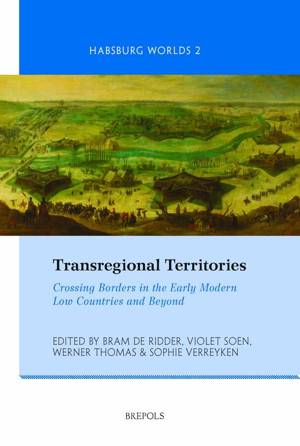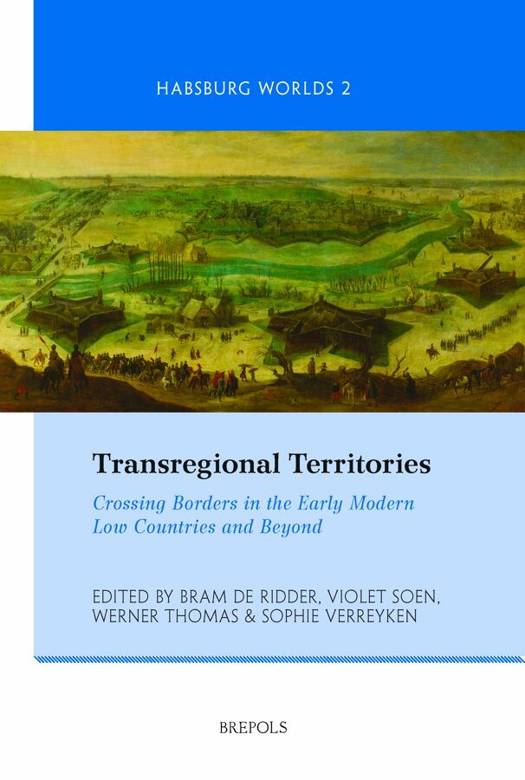
Bedankt voor het vertrouwen het afgelopen jaar! Om jou te bedanken bieden we GRATIS verzending (in België) aan op alles gedurende de hele maand januari.
- Afhalen na 1 uur in een winkel met voorraad
- In januari gratis thuislevering in België
- Ruim aanbod met 7 miljoen producten
Bedankt voor het vertrouwen het afgelopen jaar! Om jou te bedanken bieden we GRATIS verzending (in België) aan op alles gedurende de hele maand januari.
- Afhalen na 1 uur in een winkel met voorraad
- In januari gratis thuislevering in België
- Ruim aanbod met 7 miljoen producten
Zoeken
Transregional Territories
Crossing Borders in the Early Modern Low Countries and Beyond
De Ridder Bram
€ 68,90
+ 137 punten
Omschrijving
The early modern world was one of movement, contact, and exchange. Yet, this does not mean that it was borderless. On the contrary, connection existed only when people moved along and across the separations between polities, religions, and mentalities. So in order to understand early modern connections, one also needs to analyse the boundaries that accompanied them. In Transregional Territories, the early modern Low Countries are chosen as a 'laboratory' for studying border formation and border management through the lens of transregional history. Eight different cases highlight the impact of boundaries on the actions and strategies of individuals and governments. Crossing borders in early modern times was not merely an act of negating a territorial division, but rather a moment of intimate interaction with the separation itself. As such, this volume illustrates how borders forced historical actors to adapt their behaviour, and how historians can use a transregional vantage point to better understand these changes. The cases are presented by leading border specialists and scholars of the early modern Low Countries: Fernando Chavarria Mugica, Victor Enthoven, Raingard Esser, Yves Junot, Marie Kervyn, Christel Annemieke Romein, and Patricia Subirade. Bram De Ridder, Violet Soen, Werner Thomas, and Sophie Verreyken are all members of the Early Modern History Research Group of the KU Leuven. Together, they have published extensively on transregional history and the history of the early modern Low Countries, grouped under the label of transregionalhistory.eu.
Specificaties
Betrokkenen
- Auteur(s):
- Uitgeverij:
Inhoud
- Aantal bladzijden:
- 252
- Taal:
- Engels
- Reeks:
- Reeksnummer:
- nr. 2
- Geïllustreerd:
- Ja
Eigenschappen
- Productcode (EAN):
- 9782503584935
- Verschijningsdatum:
- 18/06/2020
- Uitvoering:
- Paperback
- Formaat:
- Trade paperback (VS)
- Gewicht:
- 689 g

Alleen bij Standaard Boekhandel
+ 137 punten op je klantenkaart van Standaard Boekhandel
Beoordelingen
We publiceren alleen reviews die voldoen aan de voorwaarden voor reviews. Bekijk onze voorwaarden voor reviews.









